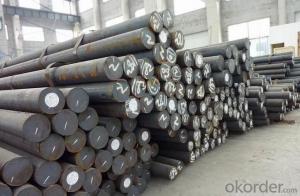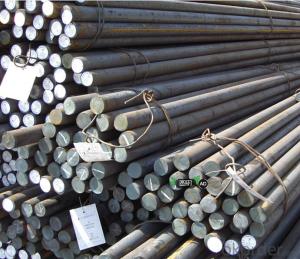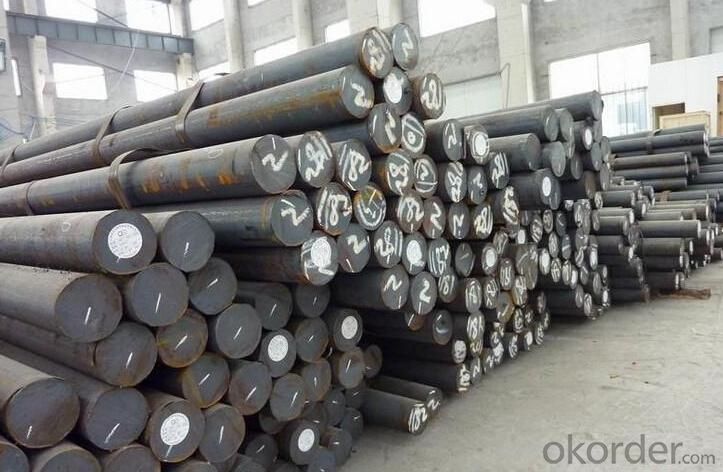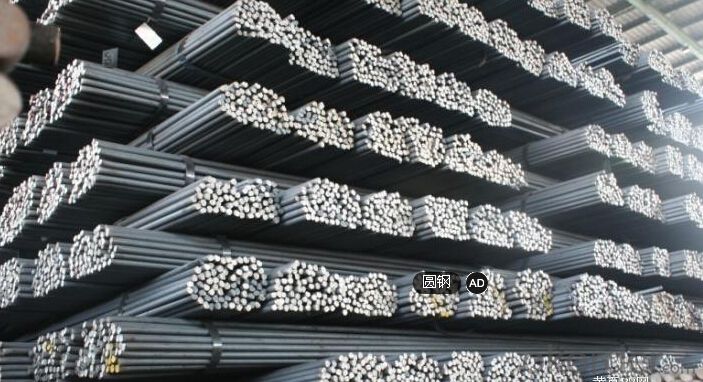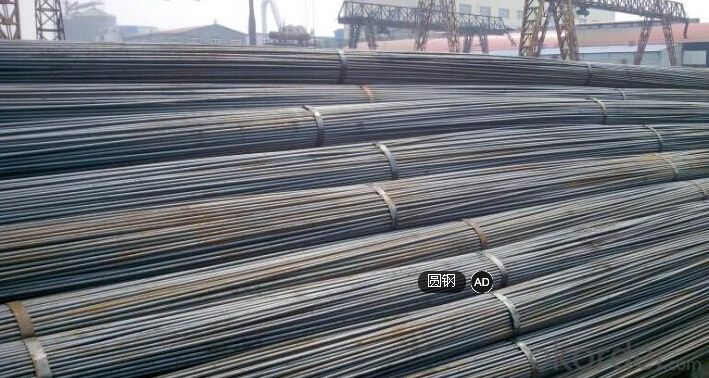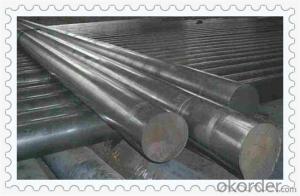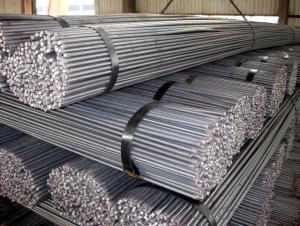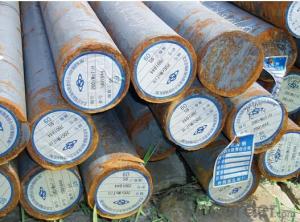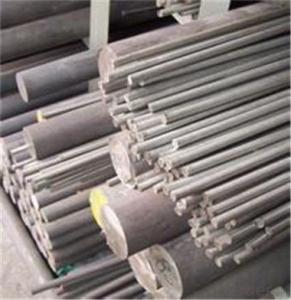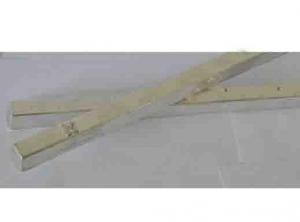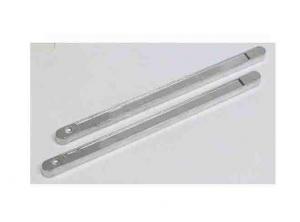11SMnPb30 / 12l14 Free Cutting Steel Bar
- Loading Port:
- Qingdao
- Payment Terms:
- TT OR LC
- Min Order Qty:
- 5 m.t.
- Supply Capability:
- 100000 m.t./month
OKorder Service Pledge
Quality Product, Order Online Tracking, Timely Delivery
OKorder Financial Service
Credit Rating, Credit Services, Credit Purchasing
You Might Also Like
Specification
Type:
Carbon Steel,Spring Steel,Bearing Steel,Gear Steel,Deformed Steel,Stainless Steel,Alloy Steel
Shape:
Steel Coil,Steel Sheet,Steel Wire Rod,Steel Flat Bar,Steel Square Bar,Steel Angle,Steel Round Bar,Steel Billets
Technique:
Hot Rolled,Cold Rolled,Cold Drawn,ERW,Forged,Saw,Extruded,EFW,Spring
Surface Treatment:
Galvanized,Coated,Copper Coated,Color Coated,Oiled,Dry,Chromed Passivation,Polished,Bright,Black,PVDF Coated
Certification:
ISO,SGS,BV,IBR,RoHS,CE,API,BSI,UL
Thickness:
5mm~800mm
Width:
5mm~800mm
Length:
6-12m
Outer Diameter:
5mm~800mm
Net Weight:
100kg
Packaging:
seaworthy packaging
11SMnPb30 / 12l14 Free Cutting Steel Bar
Detailed Information of 11SMnPb30 / 12l14 Free Cutting Steel Bar
| Name | Steel Round Bar |
| Shape | Round Bar/Square Bar/Flat Bar/Plate/Wire |
| Standard | GB/ASTM/SAE/AISI/DIN/JIS/EN/BS |
| Surface Treatment: | Black/Peeling/Polished/Machined |
| Delivery Condition: | Hot Rolled or Forged/Peeled or Black Surface |
| Test | SGS/UT 100% Elements Testing |
| Certificate: | ISO/Mill Certificate |
| Service: | 24 hours online service / |
| more than 20 years trading and manufacture | |
| Quality Assurance: | the third party inspection, such as SGS, BV, TUV…etc. is acceptable |
| Packaging Details: | Seaworthy Packaging or as per customer's packing instruction |
Product Overviews of 11SMnPb30 / 12l14 Free Cutting Steel Bar
| Product Name | Typical Grades | Diameter(mm) | Standard Adopted |
| Carbon Steel | 20 (1020/S20C/C22) | ||
| 40 (1040/S40C/C40) | Ø16-Ø300 | ||
| 45 (1045/S45C/C45) | |||
| Bearing Steel | GCr9 (51100/SUJ1) | ||
| GCr15 (52100/SUJ2/100Gr6) | Ø12-Ø250 | ||
| GCr9SiMn (A485-Gr.1/SUJ3) | GB/SAE/ | ||
| Cr-Mo Steel | 20Cr (5120/SCr420H/20Cr4) | JIS/DIN | |
| 40Cr (5140/SCr440/41Cr4) | Ø12-Ø250 | ||
| 42CrMo(4140/SCM440/42CrMo4) | |||
| Gear Steel | 20CrNiMo | ||
| 20CrMn(5115/SMnC420/20MnCr5) | Ø16-Ø600 | ||
| 20CrNiMo(8620/SNCM220/20CrMiMo2) |
Company Introduction of 11SMnPb30 / 12l14 Free Cutting Steel Bar
CNBM International Corporation is the most import and export platform of CNBM group(China National Building Material Group Corporation) ,which is a state-owned enterprise, ranked in 270th of Fortune Global 500 in 2015.
With its advantages, CNBM International are mainly concentrate on Cement, Glass, Iron and Steel, Ceramics industries and devotes herself for supplying high quality series of refractories as well as technical consultancies and logistics solution.
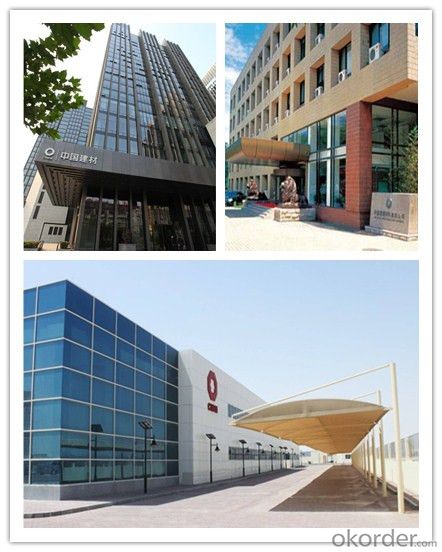
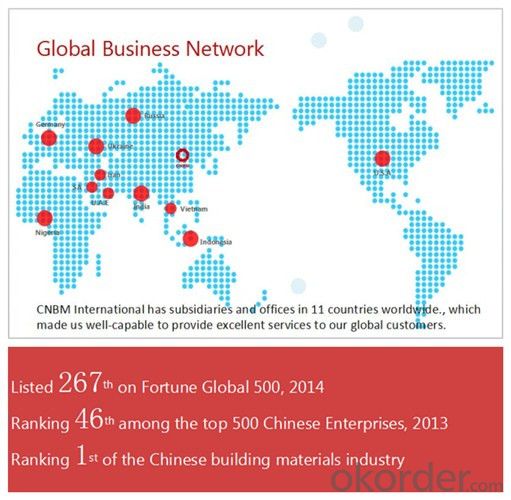
| After-sale service | l CNBM provides the services and support you need for every step of our cooperation. We’re the business partners you can trust; you can relax and get on with doing business. |
| l For any problem, please kindly contact us at any your convenient time, we’ll reply you in our first priority within 24 hours | |
| Advantages | l Industry experience over 20 years. |
| l Shipment of goods -More than 70 countries worldwide. | |
| l The most convenient transport and prompt delivery. | |
| l Competitive price with best service. | |
| l High technical production line with top quality products. | |
| l High reputation based on best quality products. | |
Packaging & Delivery of 11SMnPb30 / 12l14 Free Cutting Steel Bar
| Packaging Detail | Sea worthy packing /as per customer's packing instruction |
| Delivery Detail | 15 ~ 40 days after receiving the deposit |
Products Show
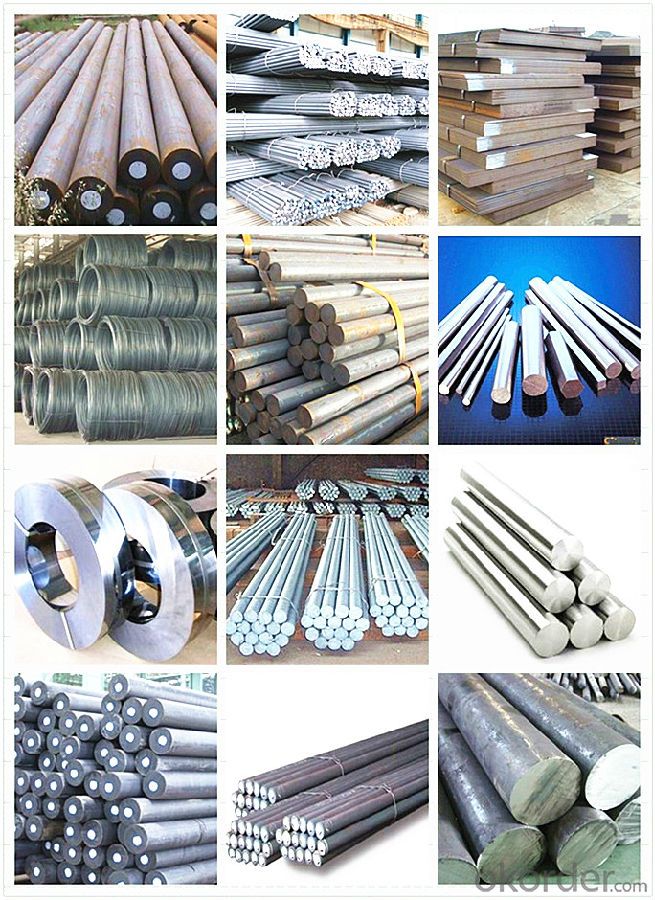
FAQ:
| Are you a trading company or manufacturer? | Manufacturer |
| What’s the MOQ? | 1000m2 |
| What’s your delivery time? | 15-20 days after downpayment received |
| Do you Accept OEM service? | Yes |
| what’s your delivery terms? | FOB/CFR/CIF |
| What's the Payment Terms? | 30% as deposit,70% before shipment by T/T |
| Western Union acceptable for small amount. | |
| L/C acceptable for large amount. | |
| Scrow ,Paybal,Alipay are also ok | |
| Why choose us? | Chose happens because of quality, then price, We can give you both. Additionally, we can also offer professional products inquiry, products knowledge train (for agents), smooth goods delivery, excellent customer solution proposals. |
| What's your available port of Shipment? | Main Port, China |
| What’s your featured services? | Our service formula: good quality+ good price+ good service=customer's trust |
| Where are your Market? | Covering more than 160 countries in the world |
- Q: What are the main applications of special steel in the marine sector?
- Special steel is widely used in the marine sector for various applications. Some of the main applications include the construction of ship hulls, offshore platforms, and marine structures. Special steel's high strength, corrosion resistance, and durability make it suitable for withstanding harsh marine environments. Additionally, special steel is used in propeller shafts, rudders, and other critical components, ensuring efficient and reliable performance of marine vessels.
- Q: How does special steel contribute to reducing product costs while maintaining quality?
- Special steel contributes to reducing product costs while maintaining quality through various ways. Firstly, special steel offers higher strength and durability, allowing manufacturers to create lighter and more efficient designs. This reduces material usage and transportation costs while maintaining the desired product performance. Additionally, special steel's exceptional corrosion resistance minimizes the need for expensive protective coatings or frequent maintenance, saving on long-term costs. Its superior heat resistance also enables manufacturers to use less energy during production processes, resulting in reduced operational expenses. Furthermore, special steel's unique properties, such as high machinability and formability, enhance manufacturing efficiency. This leads to reduced production time, lower labor costs, and increased overall productivity. Overall, the use of special steel in product manufacturing optimizes cost-efficiency without compromising quality, making it an indispensable material for many industries.
- Q: How does special steel perform in terms of chemical resistance?
- Special steel typically performs very well in terms of chemical resistance. Its composition and properties make it highly resistant to corrosion and oxidation, allowing it to withstand exposure to various chemicals without significant degradation. Additionally, special steel can be specially alloyed or treated to enhance its chemical resistance even further, making it an excellent choice for applications in industries such as oil and gas, chemical processing, and marine environments.
- Q: Can special steel be used in the chemical processing industry?
- Yes, special steel can be used in the chemical processing industry. Special steel alloys, such as stainless steel, offer excellent corrosion resistance and high strength, making them suitable for various applications in chemical plants. These steels can withstand the harsh conditions, chemicals, and high temperatures typically encountered in chemical processing, ensuring the safety and efficiency of the operations.
- Q: What are the factors that affect the weldability of special steel?
- The factors that affect the weldability of special steel include composition, heat treatment, surface condition, joint design, welding process, and welding parameters.
- Q: Can special steel be used in the telecommunications equipment manufacturing industry?
- Yes, special steel can be used in the telecommunications equipment manufacturing industry. Special steel, such as stainless steel or alloy steel, offers various advantages such as high strength, corrosion resistance, and heat resistance. These properties make it suitable for manufacturing various components used in telecommunications equipment, including antennas, towers, cable connectors, and enclosures. Additionally, the use of special steel can enhance the durability and performance of the equipment in challenging environments, such as extreme temperatures or exposure to harsh weather conditions.
- Q: Can special steel be used in automotive engine components?
- Automotive engine components can indeed benefit from the utilization of special steel. Also referred to as alloy steel, special steel possesses enhanced properties, including increased strength, toughness, and heat resistance. These attributes make it highly suitable for the utilization in critical engine components that endure high temperatures, stress, and wear. Within the realm of automotive engines, special steel finds application in an array of components, such as crankshafts, camshafts, connecting rods, valves, and piston rings. These components encounter extreme conditions, including elevated temperatures, pressure, and rotational forces. Special steel confers the necessary strength and durability to withstand these conditions, consequently ensuring dependable engine performance and longevity. The incorporation of special steel within automotive engine components yields several advantages. Firstly, it heightens the strength and load-carrying capacity of the components, enabling them to handle greater power and torque outputs. Secondly, special steel bolsters the fatigue resistance and durability of the components, thereby diminishing the likelihood of failure and prolonging their service life. Lastly, special steel exhibits the ability to endure the high temperatures and thermal cycling experienced within the engine, thereby averting deformation and upholding dimensional stability. On the whole, the utilization of special steel in automotive engine components assumes paramount importance in the pursuit of attaining optimal performance, reliability, and longevity. It guarantees that the engine can endure the demanding conditions under which it operates, ultimately granting a smoother and more efficient driving experience.
- Q: How does special steel perform in pharmaceutical applications?
- Special steel is highly valued in pharmaceutical applications due to its unique properties and characteristics. It offers excellent corrosion resistance, which is crucial in pharmaceutical environments where chemical substances and aggressive cleaning agents are commonly used. This corrosion resistance ensures that the steel remains durable and maintains its integrity over time. Additionally, special steel is known for its high strength and durability, making it suitable for applications that require heavy loads or frequent use. This strength allows the steel to withstand the rigorous demands of pharmaceutical processes, such as mixing, grinding, and sterilization, without compromising its structural integrity. Another key advantage of special steel in pharmaceutical applications is its hygienic properties. Special steel is highly resistant to bacterial growth and is easy to clean, making it ideal for environments where cleanliness and sterility are of utmost importance. The smooth surface of special steel prevents the accumulation of dirt, bacteria, and other contaminants, reducing the risk of contamination and ensuring the safety and quality of pharmaceutical products. Moreover, special steel offers excellent temperature resistance, allowing it to withstand extreme temperatures and thermal cycling typically encountered in pharmaceutical processes. This thermal stability ensures that the steel retains its mechanical properties and dimensional stability, even under fluctuating temperature conditions. Overall, special steel's corrosion resistance, high strength, hygienic properties, and temperature resistance make it a reliable and versatile material for pharmaceutical applications. Its performance in these demanding environments contributes to the production of safe and high-quality pharmaceutical products.
- Q: How does special steel contribute to reducing product weight?
- Special steel contributes to reducing product weight through its unique properties. Special steel is known for its high strength-to-weight ratio, allowing manufacturers to use thinner and lighter steel components without compromising on strength and durability. This means that products made with special steel can be designed with reduced material thickness, resulting in overall weight reduction. Additionally, special steel's excellent corrosion resistance properties can eliminate the need for additional protective coatings, further reducing the product's weight.
- Q: What are the applications of special steel in the medical field?
- Special steel is widely used in the medical field due to its exceptional properties. It is commonly utilized in surgical instruments, implants, and prosthetics. The high strength and corrosion resistance of special steel ensure the durability and longevity of these medical devices. Additionally, its biocompatibility and ability to withstand sterilization processes make it ideal for use in critical applications such as orthopedic implants and cardiovascular stents. The use of special steel in the medical field contributes to improved patient outcomes and advancements in medical technology.
Send your message to us
11SMnPb30 / 12l14 Free Cutting Steel Bar
- Loading Port:
- Qingdao
- Payment Terms:
- TT OR LC
- Min Order Qty:
- 5 m.t.
- Supply Capability:
- 100000 m.t./month
OKorder Service Pledge
Quality Product, Order Online Tracking, Timely Delivery
OKorder Financial Service
Credit Rating, Credit Services, Credit Purchasing
Similar products
Hot products
Hot Searches
Related keywords
